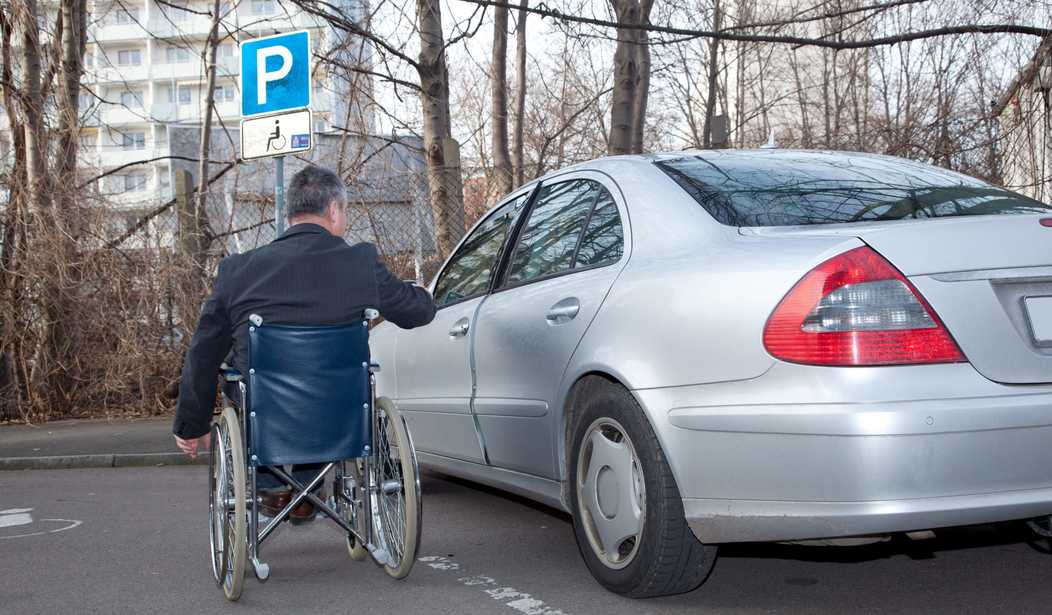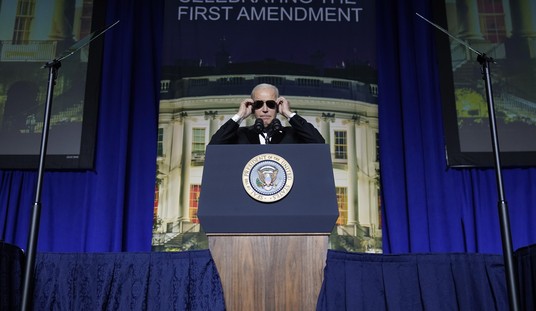“Our company is, what I believe, being extorted,” Deanna France wrote on her Facebook page after opening a letter that contained notification of a $10,000 lawsuit against her business, Extra Innings, an indoor baseball facility, because its signs marking handicapped parking spaces were a couple of inches too low.
“Let me be the first to say that I believe completely in what the ADA does. My grandfather had polio,” France added. “But we feel victimized … at an indoor batting cage, it does not rain money.”
She’s not alone in her outrage in Mesa, Ariz. Hundreds of small businesses are being sued for $10,000 alleging Arizonans with Disabilities Act (AZDA) violations, with a settlement of $7,500 usually offered.
Jim Cook faces a lawsuit for breach of the AZDA at his business, Help Services, which is a small supplier of medical equipment to an equally small community of about 6,000 elderly residents in two retirement communities.
Cook told the East Valley Tribune that he knew a handicapped parking space was required at his Help Services charity and admitted the failure to have one was an oversight.
But instead of sending him a gentle reminder, which Cook said would have been enough of a push, Advocates for Individuals with Disabilities sent him this notice: “Plaintiff brings this civil rights action against the Defendant for failing to design, construct, and/or operate facilities that are fully accessible to, and independently usable by, disabled individuals,” the suit from attorney Peter Strojnik and AID read.
“Specifically, Defendant’s Public Accommodation has barriers of access to disabled individuals by virtue of inadequacy of handicapped parking spacing, insufficient designation or signage and or insufficient disbursement of such parking spaces, notwithstanding that such modifications are readily achievable,’’ the suit added.
Cook said AID wanted more than money. The group also demanded a piece of medical equipment for use by one of its members.
“That’s when I got the idea that they were fattening their pockets,’’ Cook said.
Strojnik told the Phoenix New Times that he is not trying to put anyone out of business. He said AID was just trying to make sure the laws of handicapped accessibility were being followed.
Attorney Strojnik has been busy. He has filed so many lawsuits — more than 2,120 in the name of AID — against businesses for not being in compliance with AZDA that Mesa Chamber of Commerce president Sally Harrison described the campaign as “devastating” to small businesses and just “not right.”
“We know what we do is controversial,” Strojnik added. “But, to be frank, we’re very proud of the fact that word is getting out about ADA compliance.”
The ABA Journal reported in late August the Arizona attorney general’s office had filed a motion seeking to dismiss more than 1,000 of the cases.
The AG’s lawsuit alleges that AID claimed most of the cases settled for an average of $3,900 rather than hire an attorney.
But when a business did hire an attorney and filed a motion to dismiss the AID suit, Advocates for Individuals with Disabilities usually dropped the case.
The attorney general’s office said that showed AID was doing nothing but “engaging in ‘trolling litigation’ tactics designed to induce defendants into quick pre-suit or post-complaint settlement that merely enriches the plaintiff.”
“Plaintiff’s systemic abuse of the judicial system through these thousands of serial claims imperils the public interest by threatening the separation of powers established by the Arizona Constitution as well as the effective enforcement regime established by the public through the legislature,” the attorney general’s office motion read.
The blizzard of AZDA noncompliance lawsuits prompted state Sen. Jim Kavanagh (R) to introduce SB 1284, which would give businesses a 60-day cushion to correct ADA problems before they could be sued.
Kavanagh said the handicapped parking spots are not the only targets of the lawsuits. He knows the owner of a small hotel who was sued because the pool didn’t have a wheelchair lift.
“He’s being sued for $5,000 because of the mental anguish suffered by a victim who never even checked into the hotel,” Kavanagh told the Arizona Republic. “That’s the game. Lawyers are extorting money from hotels for very minor violations.”
Rose Daly-Rooney, legal director for the Arizona Center for Disability Law, told the ABA Journal she’d like to find out if the hotel, one of several that were sued for not having pool lifts, installed the equipment after they were sued.
Phil Pangrazio, the executive director of the Phoenix-based nonprofit organization Ability 360, said that SB 1284 is as overzealous an effort to correct a wrong as was the AID lawsuits.
“This bill encourages entities to not follow the law,” said Pangrazio. “Businesses have had 25 years to learn about the ADA and come into compliance. This is an insult to every disabled person and their family members.”
He admitted that the AID campaign might have overreached, but if nothing else, Pangrazio said, the AID campaign brought to light what he described as “blatant noncompliance” with federal ADA laws.
Jennifer Rogers, who was the executive director of Advocates for Individuals with Disabilities, resigned in late August. But she maintained in her farewell message that AID had done good work.
“ADA is finally in the spotlight after 26 years, and today it is a conversation had by businesses across Maricopa County, which is a win for individuals with disabilities,” Rogers said. “I have seen discrimination, threats, and harm that comes from hate, and I have a true understanding of the difficulties fighting for accessibility for all.”
Larry Wanger, executive director of the Arizona Statewide Living Council, told the Phoenix New Times legal action has a place in the continuing fight to make sure handicapped-accessible parking ramps, elevators and bathrooms are available.
“We can talk to business owners and try to convince them to accommodate us,” Wanger said, “but let’s be honest: suing is what gets results.”








Join the conversation as a VIP Member